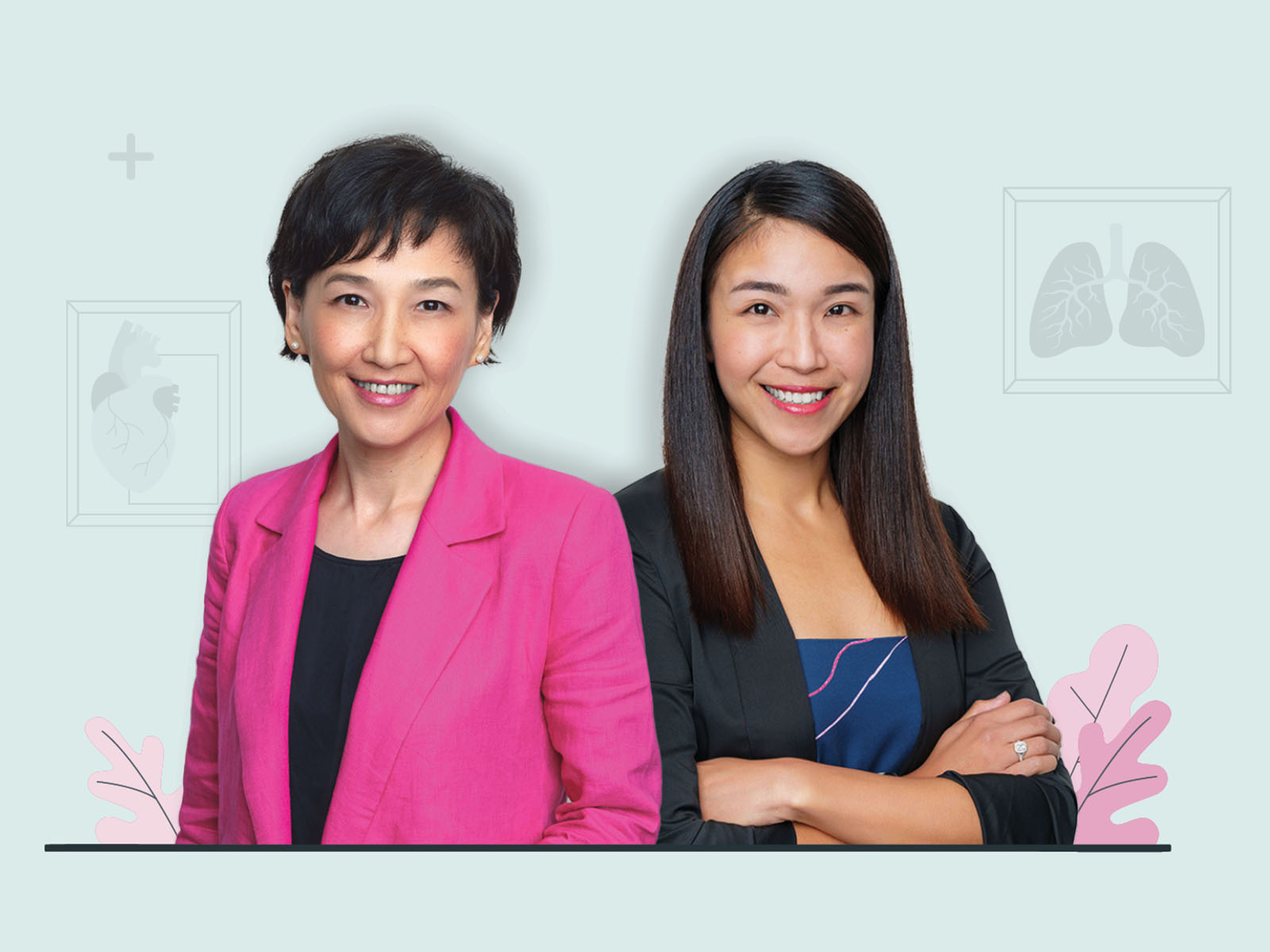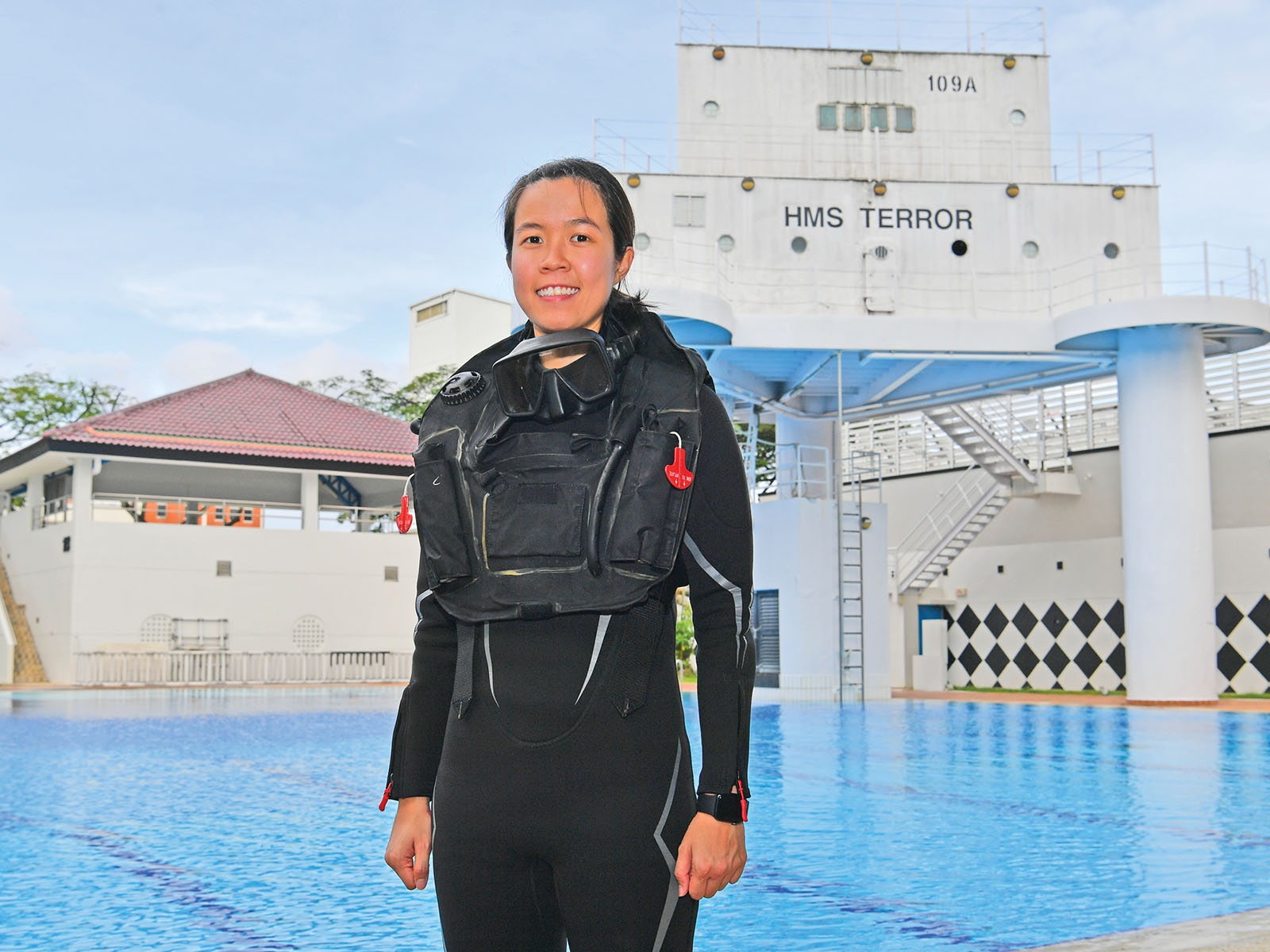
Issue 46
May 2023
NURSING

It is often said that Nursing is a noble profession. Associate Professor Zhou Wentao, a certified Advanced Practice Nurse (APN), aspires to go beyond and develop those who have responded to the call of Nursing. But what exactly is an APN?
According to the Singapore Nursing Board, an APN is a Registered Nurse who has acquired the expert knowledge, complex decision-making skills and clinical competencies for extended practice. They are trained in the diagnosis and management of common medical conditions, including chronic illnesses.
Assoc Prof Zhou, known for her contributions to APN and clinical training, began her journey in Nursing in 1997.
Driven by a perpetual hunger for a deeper understanding of clinical decision processes, coupled with a desire to holistically understand patients’ needs, her path led her through an advanced diploma in neuroscience and then to the Master of Nursing programme at Alice Lee Centre for Nursing Studies (NUS Nursing), National University of Singapore Yong Loo Lin School of Medicine.
She has been leading the Master of Nursing programme since 2015, aiming to develop students in advanced clinical knowledge and skills in advanced nursing practice, clinical medicine, social sciences and public health.
After I became an APN, the expanded clinical practice allowed me to add value to patients’ care by filling up multiple clinical gaps. But there were still gaps that I realised were beyond my capability, which is why I started to do research and ended up doing a PhD—to explore how APNs can improve transition care.”
Upon completion, graduates can apply for an APN provisional licence with the Singapore Nursing Board to continue a 12-month integrated APN internship and be certified as an APN—what Assoc Prof Zhou had gone through.
“After I became an APN, the expanded clinical practice allowed me to add value topatients’ care by filling up multiple clinical gaps. But there were still gaps that I realised were beyond my capability, which is why I started to do research and ended up doing a PhD—to explore how APNs can improve transition care,” said Assoc Prof Zhou. “It has made me a conscious learner and sharp observer.”
Assoc Prof Zhou regularly teams up with Dr Brigitte Woo, a Research Fellow at NUS Nursing.
of the registered
nurses in the
workforce are
interested in
becoming APNs
With the support of the Chief Nursing Officer (CNO) Office, Ministry of Health (MOH), Singapore, they have conducted nationwide studies to explore the practice patterns, level of acceptance and impact of APNs in Singapore. These studies were eventually published in top nursing journals.
In 2020, Assoc Prof Zhou and Dr Woo won the Equal Opportunities and Career Development (EOCD) Seed Grant to embark on, “Understanding the gender gap in advanced practice nursing: an exploratory study”. Elucidated in this study was that men in nursing enjoy opportunistic advantages in entering the APN workforce but are not interested in the role and not staying long enough in the Nursing profession to become APNs.
Assoc Prof Zhou and Dr Woo continue to collaborate with the CNO office and nursing leaders to professionally develop and strengthen the APN workforce through evidence-based inquiry.
As the Programme Director of the Master of Nursing programme at NUS Nursing, Assoc Prof Zhou works with healthcare leaders and other APNs to ensure that the APN-preparatory education remains relevant and cutting-edge. She works with MOH’s APN development committee to review APN-related policies, practice models and clinical outcomes. In recent years, she played a critical role in the implementation of the National Collaborative Prescribing programme.

In June 2022, Assoc Prof Zhou attended the American Association of Nurse Practitioners Conference—the first ambassador to be chosen from Southeast Asia. As an ambassador, she is able to build global connections to facilitate international collaborations, thereby elevating APN practice and research in Singapore.
Assoc Prof Zhou hopes to inspire people to join nursing and stresses the need to engage and train nurses based on their interests. She says the nursing workforce is the backbone of the healthcare system but a shortage of nurses is a global crisis—Singapore included—worsened by the COVID-19 pandemic.
Findings from her nationwide study (Woo et al., 2020) reported that only 30% of the registered nurses in the workforce are interested in becoming APNs but a large proportion of them are young (less than 35 years old) and inexperienced. This proportion of nurses do not get selected as they have yet to meet the minimum entry requirements for the APN-preparatory education at the Master of Nursing programme in NUS Nursing.
Assoc Prof Zhou said these young nurses who are lacking in years of clinical experience should not be overlooked. Efforts should be made to keep them engaged within the workforce while they build clinical experience in respective health institutions.
“Instead of waiting for others to fix existing problems, I do my part in building a better healthcare ecosystem.” This is a work ethos Assoc Prof Zhou goes by and this is truly evident in all that she has done for advancing Nursing in Singapore.
More from this issue

ALUMNI VOICES
She’s a Diver-doctor in NDU


